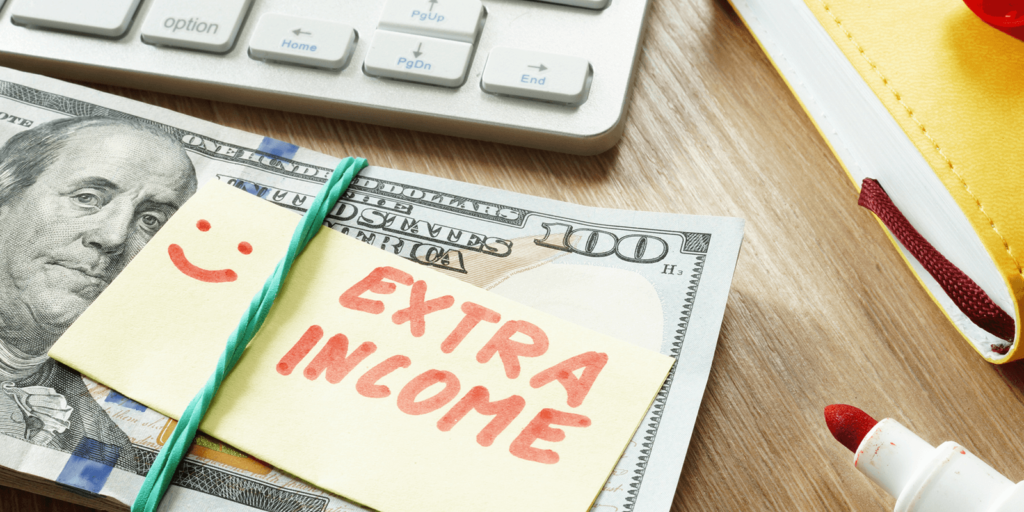
How you handle extra income can have a major impact on your finances, a raise at work, tax refund, inheritance, or a substantial return on an investment can leave you with extra money.
Give a lot of thought and consideration before deciding what to do with the money. When you gain extra income it can lead to unnecessary spending, you need a plan for where the money goes. You don’t want to increase your spending habits and as a result find yourself back where you started or maybe even worse. Instead determine how the extra money can benefit your financial goals.
Look at Your Budget
When your income increases re-examine your budget. Are you currently living within your means and able to pay all your monthly expenses in full and on time? If you are then there is no reason to make a change or add an additional expense which could eat up any extra money you are receiving. If you find there are bills you struggle to pay, put additional money toward those expenses which keeps you out of debt.
Do You Have a Fully Funded Emergency Account
An emergency fund is money you have on hand to cover emergencies and unplanned expenses, having money in an emergency fund ensures that you will be prepared for a sudden expense, and you can handle them more easily. Unemployment, illness, family emergencies and home and auto repairs can happen without warning.
Most financial experts recommend having enough money in an emergency account to cover 3-6 months of expenses. If you lose your job, you should have enough money in your emergency fund to cover your monthly bills. Having this money allows you to pay your bills while you are out of work without going into debt. Add up your monthly expenses and multiply that number by the number of months (3-6) you want to save for. That number is the amount of money you want in your account. If you don’t have enough money saved for emergencies use the extra income to fully fund the account.
Savings Account
Aside from your emergency fund you can add to other savings accounts, you might have one for everyday savings to use for non-emergency situations, you can also have accounts for things you are saving up for such as vacations, a wedding, a new roof, or a down payment on a house or car. By putting money into these types of savings accounts you avoid going into debt to pay for them. Consider automatically transferring extra money directly to your savings accounts. When it is automatic you will not be tempted to spend the money or skip a deposit.
Pay Off Debt
If you are working to pay off debt, house, car, student loans, etc. Put the extra money toward the debt. Accumulated debt builds interest so the sooner you pay it off the more you save.
Increase Investment Contributions
If you are comfortable with your savings and emergency fund and your debt has been paid, consider using the extra money to add to your retirement and investment accounts. If you have an employer sponsored 401K contribute a larger percentage of your income, many employers offer a 401K match so take full advantage of that match. You might also contribute to a Health Savings Account (HSAs), Individual Retirement Account (IRA) or brokerage account.
College Fund
If you have children, you can start a college fund for them. A 529 plan is a tax-advantaged investment account that grows tax-deferred and remains tax-free as long as the funds are used to pay for qualified educational expenses.
While its ok to splurge occasionally, the best gift you can give yourself is financial peace and security.
